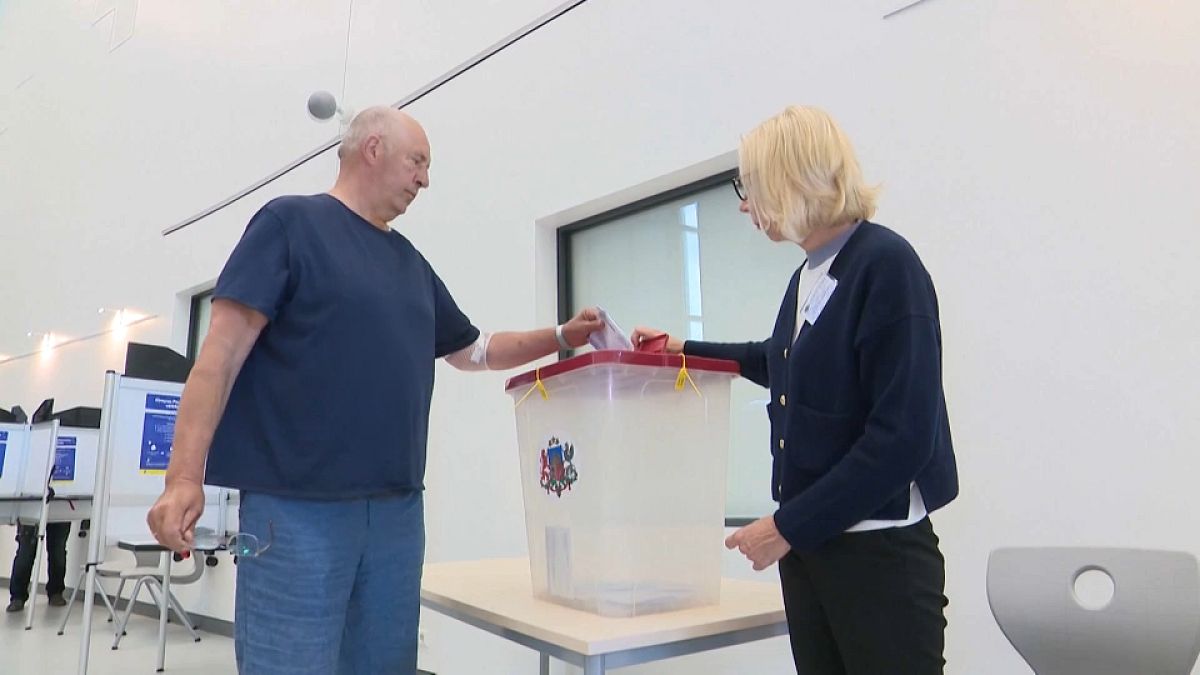According to opinion polls carried out in February and May by the research centre Norstat together with the public broadcaster LSM, around a third of respondents said they had no interest in the EU elections.
Latvia’s Central Election Commission (CVK) says final voter turnout for the EU elections was stable at 33.7%, slightly up on 2019 data when 33.5% turned out to vote.
The figure is still a far cry from 2009 when more than half of eligible voters went to the polls.
And those numbers are at odds with a Eurobarometer survey conducted in April in which 65% of Latvians expressed their readiness to engage with the elections and vote.
The CVK said voting took place without incident but there had been serious technical glitches affecting turnout data. That led several news outlets to report that turnout had exceeded 2019. Those stories were later withdrawn.
According to opinion polls carried out in February and May by the research centre Norstat together with the public broadcaster LSM, around a third of respondents said they had no interest in the EU elections.
Respondents aged between 18-29 were the most likely to say that they had no plan to follow the elections, while older respondents aged between 60-74 were more likely to take an interest.
Candidates from 16 parties are in the running for Latvia’s nine parliamentary seats, and data in the run-up to voting day suggested the centre-right National Alliance party was leading the polls.
The left-leaning Progressives were in second place and the centrist New Unity party of Prime Minister Evika Siliņa was polling third.
The National Alliance campaigned on a promise “to defend Latvia’s interests in the EU, not the EU’s interests in Latvia”.
It says all EU member states should spend at least 2% of GDP on defence and advocates for strengthening the EU’s eastern border against both illegal migration and military threats.
The party’s lead candidate is Roberts Zīle who has been an MEP for 20 years and serves as the current vice president of the European Parliament.
The social democrat Progressives party advocate for support for Ukraine, which includes giving it access to EU markets and assigning it observer status in the European Parliament. The Progressives are also calling for stricter environmental controls and investing in railways instead of airlines.
Lead candidate is former presidential contender Elīna Pinto.
And the New Unity party were very clear on where they stood on security.
“Russia was, is and will be a source of instability and military threat to all of Europe, both in the near and distant future,” a party statement said.
The party has been very firm in its condemnation of Russia’s invasion of Ukraine and is also in favour of EU enlargement. Their lead candidate is EU Commissioner Valdis Dombrovskis.
Last month saw protests in Latvia against the national broadcaster’s decision to hold some pre-election debates in Russian.
Latvia is on the easternmost fringes of the EU and shared a border with Russia. According to data from the Central Statistical Bureau, more than 60% of Latvians speak Latvian but Russian-speakers account for a significant minority of around a third.
The national broadcaster LSM provides some content in Russian and the Public Electronic Mass Media Council was petitioned to block the Russian-language debates, something the body declined to do saying it would mean interference in the programming and decisions of the LSM.
Security, particularly following Russia’s 2022 invasion of Ukraine, is an important issue for many Latvians. The small Baltic country was annexed by the Soviet Union until its collapse in 1991, and now many in Latvia fear a revisionist Russia.
That prompted the government to reintroduce conscription last year, a move which found a lot of support among the public. One study found that 60% of respondents found conscription crucial for Latvian defence as the country shares a 200-kilometre border with Russia.

